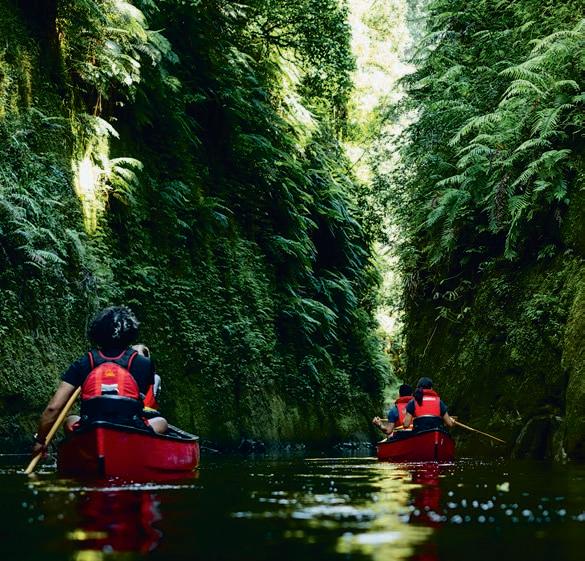
1 minute read
Te Awa Tupua – Whanganui River
from Welcome to Whanganui 2021
by NZME.


Advertisement
Tupua te Kawa The first of the four values is “Ko te awa te ma¯ta¯puna o te ora” – “The river is the source of spiritual and physical sustenance.” Hapu ¯ and local communities share an emotional attachment with the river as much as a physical one. This emotional connection drives our duty of care toward the river.
The second core value is indivisibility: “E rere kau mai te awa nui mai te ka¯hui maunga ki Tangaroa” – “The great river flows from the mountains to the sea.” If we are to address the river’s needs, we must address the river as a whole. The third value relates to the longstanding relationship that Whanganui hapu ¯ and iwi have with the river. Hapu ¯ and iwi are inextricably intertwined with the river. The tribal maxim “Ko au te Awa, ko te Awa ko au” – “I am the river and the river is me” speaks of a responsibility to care for the river out of whakapapa (kinship) with the river itself; a responsibility that can neither be conferred nor removed.
The fourth value speaks of the small and large streams that flow into one another and form one river: “Nga ¯ manga iti, nga¯ manga nui e honohono kau ana hei Awa Tupua.” This value recognises that all communities have an interest in ensuring the health and wellbeing of the river. It is an affirmation that each of the streams (communities) of the river remain steadfast in our collaboration to that end.
Thus, a duty of responsibility and care is created across communities of the river - to actively collaborate over the health and wellbeing of the Whanganui River, Te Awa Tupua. Most importantly the collective responsibility inherent in Tupua te Kawa will bind, educate and guide successive generations to a greater and more inclusive discourse over sustainability of natural resources locally, nationally and globally.










